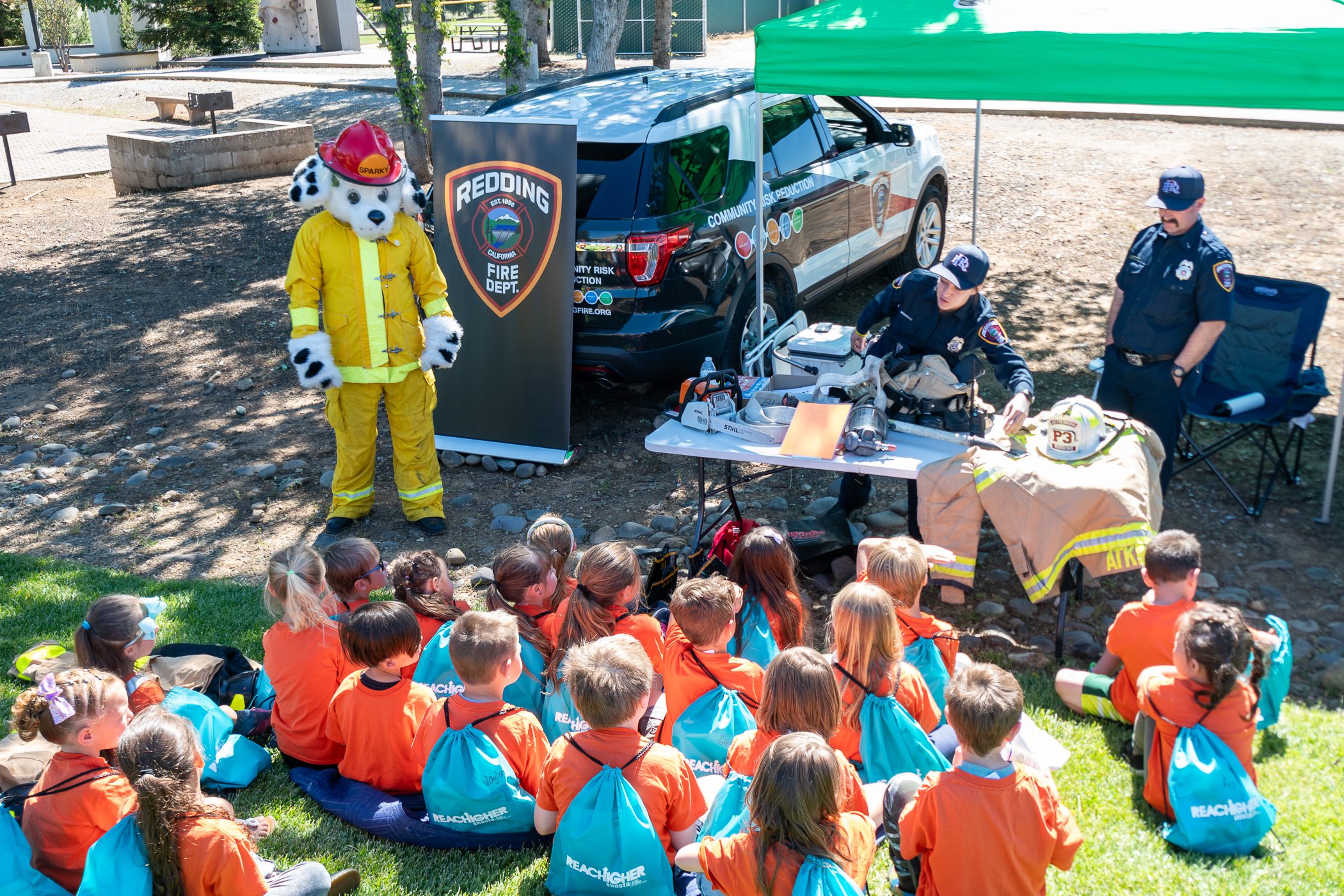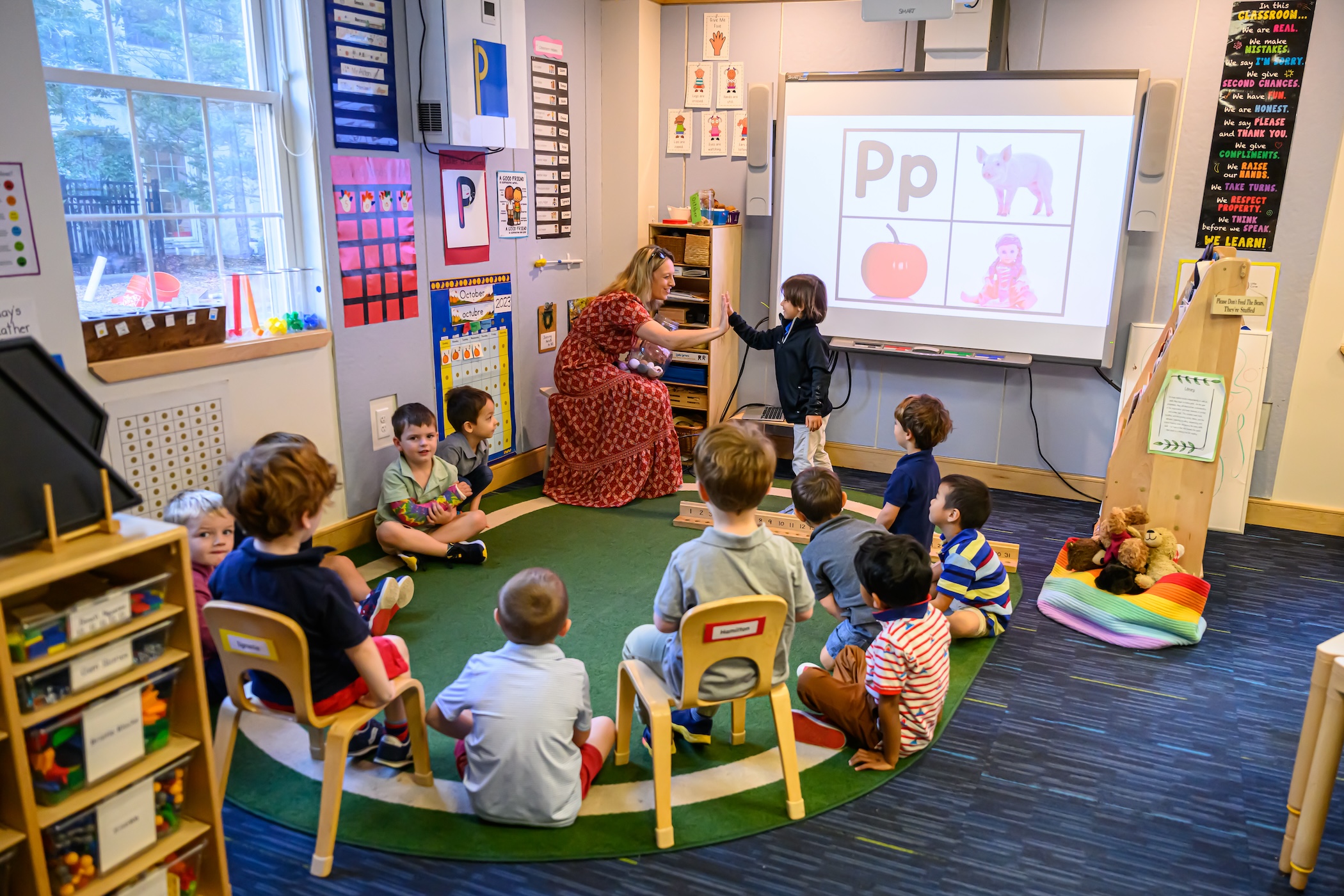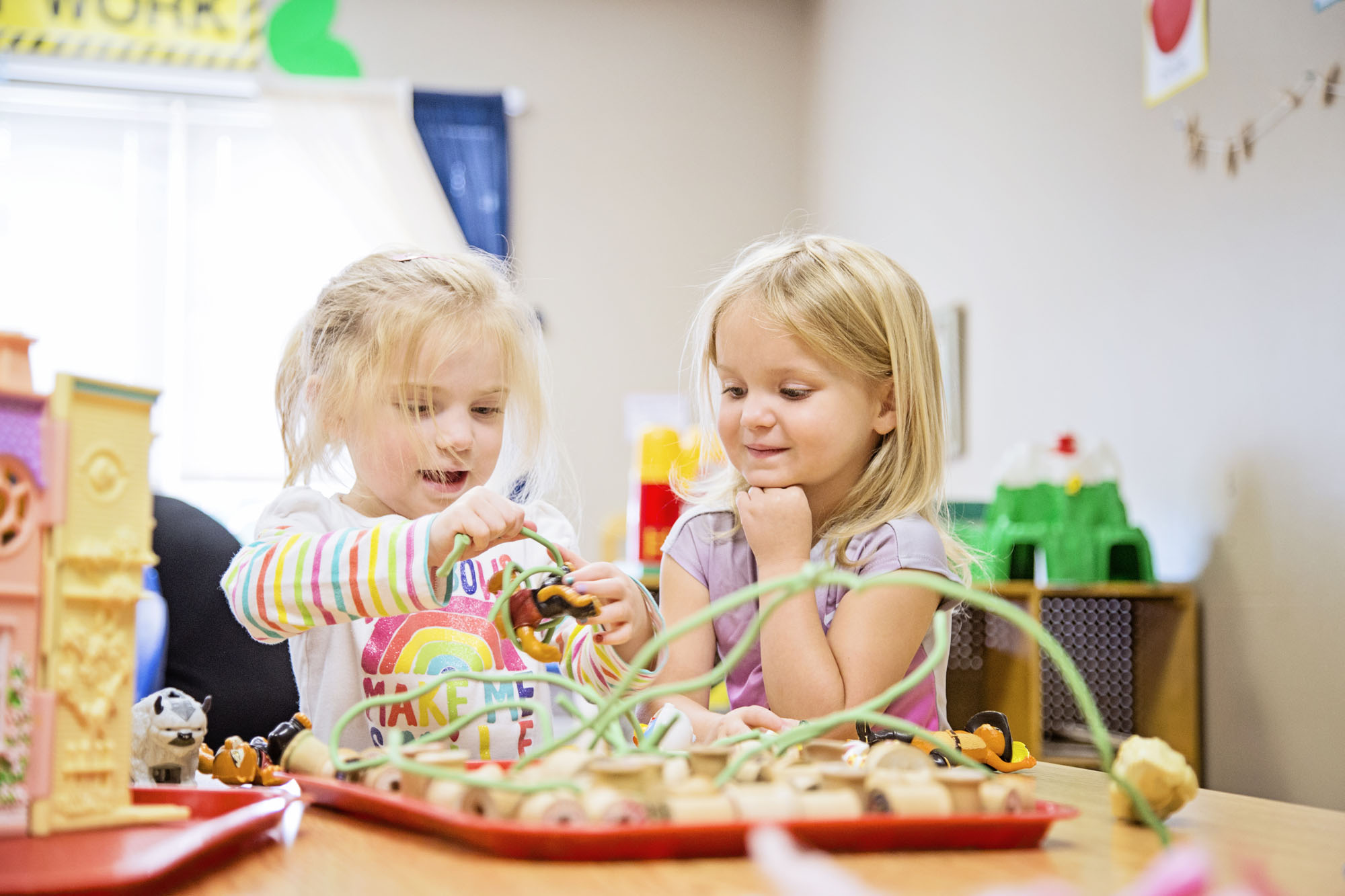The Importance of Interactive Tasks in Grade School Education And Learning
Interactive tasks play an important role in elementary school education. They involve pupils and boost finding out end results. Via group tasks and hands-on experiments, pupils experience the product in a functional means. This technique deals with diverse understanding styles and advertises necessary skills. Nevertheless, the advantages prolong past academics. Discovering the much deeper impact of these activities discloses their importance in shaping young students' futures. What makeovers occur when pupils actively get involved?
Enhancing Involvement With Interactive Learning
Although conventional training methods have their qualities, interactive knowing significantly boosts pupil interaction in quality institution education and learning. This approach motivates active participation, allowing students to submerse themselves in the understanding process. By utilizing team tasks, hands-on experiments, and technology-driven resources, educators produce a setting where students really feel extra connected to the product.
Interactive discovering assists in partnership among peers, promoting communication skills and team effort. It likewise satisfies varied discovering designs, guaranteeing that aesthetic, auditory, and kinesthetic students can all thrive. Trainees are extra most likely to retain information when they proactively participate, as opposed to passively obtaining understanding.
This dynamic technique not only makes discovering enjoyable yet also infuses a feeling of possession in pupils concerning their instructional journey. As they involve with the content, their interest and inspiration to find out increase, laying a strong foundation for future scholastic success.
Creating Important Believing Abilities
Interactive learning not just boosts engagement however likewise acts as a stimulant for developing critical thinking skills in elementary school students. Through activities such as problem-based discovering, discussions, and hands-on experiments, students are encouraged to examine details, review different perspectives, and formulate reasoned conclusions. These interactive experiences require pupils to wonder about assumptions, leading them to think more deeply regarding numerous subjects.

Interactive tasks frequently existing real-world circumstances that test students to apply their knowledge creatively. By maneuvering through these obstacles, they find out to identify pertinent information and make educated choices. This process cultivates not just specific essential reasoning however also encourages pupils to express their thought procedures, enhancing their capability to communicate effectively. As a result, interactive knowing environments grow a generation of essential thinkers who are better prepared to deal with intricate problems in their future academic and expert endeavors.
Promoting Partnership Amongst Peers
Cultivating cooperation among peers is crucial in elementary school education, as it improves teamwork and interaction abilities. Engaging in group activities aids pupils develop depend on and regard for one an additional, preparing for reliable partnership. Furthermore, problem-solving with each other allows pupils to learn from each various other and create a collective technique to difficulties.
Synergy and Communication Abilities
Efficient teamwork and interaction skills are essential elements of an effective quality college education and learning. Participating in interactive tasks motivates trainees to work together, share concepts, and solve issues together. Such experiences promote the growth of crucial communication capabilities, enabling children to reveal their ideas plainly and listen proactively to others. Via team effort, students learn to value diverse point of views, cultivating a sense of neighborhood and shared obligation. Structured group tasks, whether in academics or innovative jobs, boost peer interactions, educating youngsters just how to bargain functions and deal with disputes. As a result, these skills not only add to a favorable class setting however additionally prepare students for future collaborative undertakings in college and the work environment. On the whole, teamwork and communication are fundamental to alternative advancement in grade school.
Building Trust and Regard
Structure count on and respect amongst peers serves as a foundation for successful collaboration in elementary school atmospheres. They are a lot more likely to involve proactively in group activities when pupils really feel valued and appreciated by their schoolmates. Interactive activities, such as group jobs and cooperative games, provide opportunities for pupils to pick up from one another, fostering a feeling of community. This environment urges open communication, enabling students to express their ideas and viewpoints without worry of judgment. As trust builds, students become much more ready to share obligations and support each various other's discovering. Ultimately, growing an ambience of trust fund and respect boosts not only scholastic results but likewise social development, furnishing pupils with important social abilities for their future ventures.
Problem-Solving With each other
Collaborative analytical involves students in essential thinking and team effort, crucial skills for their scholastic and personal development. When students interact to deal with obstacles, they learn to connect successfully, regard varied perspectives, and take advantage of each various other's toughness. This process improves their capacity to analyze issues from different angles and create imaginative solutions. Team tasks, such as science experiments or mathematics obstacles, advertise energetic engagement and foster a sense of area. As students collaborate, they likewise build social abilities, learning to work out and jeopardize, which are vital for future interactions. Eventually, analytic with each other grows a helpful learning atmosphere, equipping pupils to take possession of their education while preparing them for collaborative undertakings past the class.
Motivating Imagination and Technology
Encouraging creativity and innovation in elementary school education can be considerably improved through hands-on learning experiences. These activities enable trainees to engage straight with principles and materials, promoting creative thinking. Furthermore, collaborative group jobs can stimulate varied ideas and solutions, better supporting a creative atmosphere.
Hands-On Knowing Experiences
A wide variety of hands-on knowing experiences significantly enhances creative thinking and innovation in elementary school education. Involving students in practical tasks allows Look At This them to use academic knowledge in real-world contexts, view cultivating much deeper understanding. By manipulating materials and tools, children establish crucial analytic skills and find out to think outside the box. These experiences inspire interest and motivate trainees to discover their rate of interests better. In addition, hands-on activities can link various topics, linking scientific research, art, and math in significant ways. This interdisciplinary technique motivates students to see connections and think creatively. Inevitably, hands-on understanding experiences nurture a generation of pioneers, outfitting them with the abilities and confidence needed to take on future obstacles and add to culture in unique ways.
Collaborative Group Projects
Hands-on understanding experiences naturally result in the unification of collaborative group projects, which play an important function in fostering creative thinking and innovation in elementary school education and learning. These jobs motivate trainees to collaborate, sharing ideas and viewpoints, which boosts analytical skills and crucial thinking. Through cooperation, trainees find out to connect efficiently and regard varied viewpoints, vital skills for their future. Furthermore, team projects offer possibilities for pupils to try out different roles, enhancing their versatility and confidence. Taking part in this participating atmosphere enables them to explore their creativity, pushing the boundaries of traditional learning. Ultimately, joint group projects not only enrich the instructional experience yet additionally prepare pupils for real-world difficulties that need synergy and cutting-edge thinking.
Structure Self-confidence and Independence
As students engage in interactive tasks, they often discover chances to build self-confidence and self-reliance. These tasks, whether they include hands-on tasks, role-playing, or analytical jobs, encourage pupils to take effort and reveal their concepts openly. By taking part in such experiences, students find out to trust their abilities and choose without depending Read Full Article entirely on guidance from teachers or peers.
In addition, interactive activities foster a feeling of ownership over learning. When students take on obstacles collaboratively or individually, they establish vital assuming abilities and resilience. This process not only boosts their understanding of the subject however also encourages them to take risks in their understanding trip.
As they navigate numerous interactive circumstances, students slowly shed their self-doubt, paving the means for boosted self-esteem - Kindergarten. Inevitably, these tasks play an important function in nurturing independent and confident students, outfitted to encounter future academic and personal challenges
Developing a Favorable Classroom Setting
While fostering a positive class atmosphere is crucial for efficient learning, it requires intentional effort from instructors to develop a room where pupils really feel risk-free, recognized, and involved. A positive ambience motivates cooperation, permitting students to express themselves without concern of judgment.
Educators can attain this by establishing clear expectations, promoting mutual respect, and recognizing specific contributions. Incorporating interactive tasks better improves engagement, making finding out more enjoyable and vibrant.
Additionally, a caring atmosphere sustains social-emotional growth, as trainees find out to browse relationships and resolve conflicts. Educators play an important role in modeling favorable behavior and reinforcing a society of kindness and inclusivity.
Often Asked Questions

Exactly How Can Parents Assistance Interactive Knowing in your home?
Parents can support interactive knowing in your home by offering engaging products, urging hands-on jobs, integrating instructional games, fostering conversations, and creating a nurturing setting that promotes interest and expedition in their kids's discovering experiences. (Kindergarten)
What Kinds of Interactive Activities Are The Majority Of Reliable?
Hands-on projects, joint games, role-playing circumstances, and educational modern technology applications are amongst the most efficient interactive tasks. These engage pupils, enhance crucial assuming skills, and promote teamwork, ultimately promoting a much deeper understanding of various topics.
Just How Do Interactive Tasks Satisfy Different Understanding Styles?
Interactive tasks engage aesthetic, acoustic, and kinesthetic learners by integrating diverse techniques. These tasks help with recognizing with hands-on experiences, collective discussions, and aesthetic help, enabling trainees to absorb information according to their favored understanding style.
What Are the Costs Related To Executing Interactive Tasks?

Applying interactive activities sustains prices such as materials, training for educators, technology upgrades, and prospective facility adjustments. Budget plan restraints can also influence the frequency and range of tasks supplied to students in academic settings.
Just How Can Teachers Examine the Influence of Interactive Knowing?
Teachers can assess the effect of interactive learning through observations, pupil responses, efficiency metrics, and relative evaluation of examination ratings prior to and after execution, guaranteeing an extensive understanding of involvement and knowledge retention renovations.
Through tasks such as problem-based discovering, arguments, and hands-on experiments, students are motivated to analyze information, assess different viewpoints, and develop reasoned final thoughts. Interactive activities usually present real-world scenarios that test trainees to apply their knowledge artistically. Engaging in interactive tasks urges trainees to work together, share concepts, and address issues together. Interactive activities, such as group projects and cooperative games, offer chances for trainees to learn from one an additional, fostering a feeling of neighborhood. As students engage in interactive activities, they usually uncover chances to develop self-confidence and self-reliance.